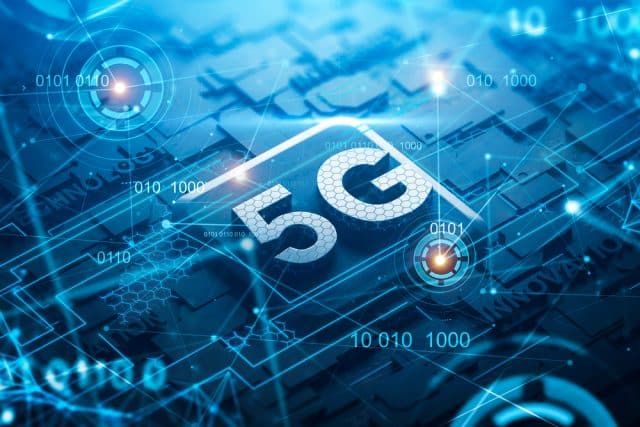Five ways 5G will impact hotels with the rise of the contactless era

Companies operating in the hotel and hospitality industry face strong competition from rivals when attempting to attract customers. The past 18 months have been difficult for the industry as well as the country as a whole. In the wake of the COVID-19 pandemic, the population is beginning to travel more extensively again, presenting an excellent opportunity to stimulate interest in a particular hotel destination.
The features and amenities a hotel offers can be the difference between serving satisfied guests who will happily return and disgruntled customers who are already looking for an alternative for their next trip. One of the features that a majority of travelers expect is connectivity for their mobile devices. Hotels that do not offer robust connectivity will not live up to the expectations of the majority of their customers.
In this article, we will discuss the way that 5G is impacting hotels as they continue to move toward a more contactless and enjoyable experience for new and returning guests.
What’s So Special About 5G?
If you watch television or read the news, you have likely heard the term 5G. Wireless carriers like Verizon and T-Mobile advertise their 5G offerings heavily, and new mobile devices are capable of using it to create a more exceptional user experience. These improved connection speeds are becoming expected by users rather than being an optional benefit.
Wireless providers are steadily expanding the reach of 5G networks to encompass a larger portion of the U.S. It is now available in many major cities and becoming more prevalent daily. Estimates indicate that the full potential of 5G will not be achieved for another decade or so, giving hotels and other businesses some time to upgrade their facilities to handle 5G devices. Businesses already in a 5G service area should be looking to address their networking shortcomings in the near future or risk being left behind by more proactive companies. Enhancing in-building cellular networks and ensuring they are 5G capable is an investment in the future that no business should ignore.
How 5G Will Impact the Hotel Industry
Improving cellular connectivity and implementing 5G-ready technology promises to provide benefits to the company running a hotel, its customers, and its employees in many diverse ways. The following are some of the changes and advantages that can be expected in hotels that upgrade their cellular infrastructure.
1. Convenience and streamlined operations
Private networks and 5G offer conveniences and opportunities for more efficient operation throughout a hotel applications such as:
- Contactless check-in and room keys are becoming mandatory for hotels interested in attracting modern travelers.
- New software and applications that are device and network-based are optimizing all aspects of hospitality management from staff communication to tracking and reporting. Housekeeping staff can immediately report when rooms have been prepared and are ready for new guests, maintenance can receive service request instantly, and managers can pull real time reports to ensure all operations are running smoothly.
- Contactless payment and check-out for guests.
- Self-service options for guests using dedicated mobile applications or e-commerce sites offered by the hotel.
2. Enhanced security
Cellular networks are substantially more secure than Wi-Fi. Guests will be able to access sensitive data from their devices more securely and obtain faster access to large files. The cloud-based nature of 5G allows for more robust network monitoring that can identify and prevent unauthorized intrusion.
3. Economic benefits
Going contactless with a 5G network provides numerous opportunities for economic gain. Examples include:
- Higher occupancy rates spurred on by faster room turnover and highly rated reviews.
- More repeat customers due to a high rate of satisfaction with the amenities and convenience provided by 5G.
- More efficient management with the real time reporting capabilities available through network-based software.
4. Reliability
When so many essential parts of the business are connected to a wireless platform, the reliability of your network is essential. In case of a power outage, guests and staff will never lose connectivity like they do with Wi-Fi. Therefore, never loosing access to keyless entry, contactless payment and communications.
5. Preparing for the future
The convenience, speed and reduced latency provided by 5G will prove to be more beneficial to hotels and their guests than Wi-Fi. As cellular providers move toward unlimited data plans, and more guests will be using 5G capable devices and will expect hotels to offer this type of connectivity, failure to prepare for this inevitability will leave hotels scrambling to find new ways to attract and retain guests.
Different types of indoor networks
Passive Distributed Antenna System (DAS)
Generally used to extend the cellular coverage for voice and SMS rather than increased devices, users and data. By utilizing the existing macro-cellular base-station, it allows the amplifiers to rebroadcast signal (off air) of macros and distribute it across various low powered antennas located throughout the interior facility via coaxial cables and splitters. This form of RF distribution is cost-effective for single transmit streams within a limited range. Due to limitations with coax cable loss, the maximum coverage area for a passive DAS system is typically under 300,000 square feet.
Active DAS
Commonly used for large enterprise venues like stadiums, concert venues and manufacturing facilities. Active DAS are designed to handle 70,000+ users and devices at once. Rather than only using the coaxial RF cables of a passive system the active system uses structured fiber and copper cabling to capture the signal and transmit them across the digital network within the building before transmitting the signal through the coaxial cables to a distributed antenna. Due to its increased complexity and reach, there is increased cost and regulations from the Federal Communications Commission (FCC). Depending on the nature of the facility, this can be the optimal option. This approach uses RF signal sources (BTS or Small Cell Fed) installed with the active DAS to bring a carrier-grade signal to the venue’s DAS and benefits all users within. This signal source is local to the venue feeding the DAS.
Uncoordinated Small Cells
Upgrading your wireless to include indoor small cells can give you the advantage of increased coverage at a relatively low cost due to its simple installation and cable structure. Because each small cell is considered a self-contained unit, there can be limitations to the network performance and they rely on the perfect combination and placement to ensure the signals are coordinated. Small cells have a smaller power amplifier feeding a specific focus on coverage areas. This allows the venue to deploy lower-powered systems that feed a specific area within a building, street, parking lot or area where coverage is poor from the existing macro. This is a combination of an active and passive DAS.
Each system has unique features and capabilities that are tailored differently for every enterprise. It’s important to consult wireless experts that can help navigate the different systems for your particular project.
Best practices for implementation of a 5G capable network in a hotel
While the promise of faster speeds offered by 5G make it an appealing upgrade for forward-thinking hotels, it needs to be done correctly to achieve the expected benefits. A poorly implemented and configured network will not produce the full capabilities of 5G. Simply installing a 5G network is not enough.
Working with an experienced and skilled third party will result in a more efficient 5G network that delivers on the promise of this technology. A truly experienced provider can ensure that the right equipment is installed to address a hotel’s unique requirements, and seasoned pros can ensure the hotel and its guests get the most out of 5G by troubleshooting issues and refining the network to ensure it reaches its full potential.
Implementing a 5G network is not a trivial exercise and should not be undertaken by a motivated but inexperienced hotel IT staff. The right partner understands how to scale 5G networks to address the different needs of large and small hotels. At a minimum, a company that specializes in engineering and deploying 5G networks should be consulted before a hotel owner embarks on the road to enhanced customer satisfaction and operational efficiency.
Image credit: denisismagilov/depositphotos.com

Dan Leaf is the founder and CEO of LEAF Communications, an award-winning California-based telecom firm serving clients across the U.S. with cutting-edge wireless solutions under its five divisions within the company. LEAF specializes in small cell deployment, 5G integration, first-responder systems (ERRCS), site acquisition real-estate services, architecture and engineering, and complete project management and construction services. To learn more about LEAF’s turn-key telecom solutions that ensure its clients remain connected, compliant and competitive, visit www.leafcomm.com.
